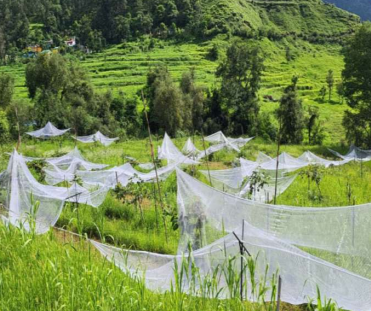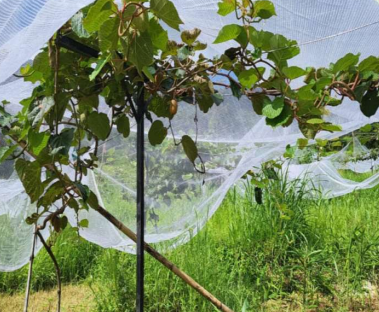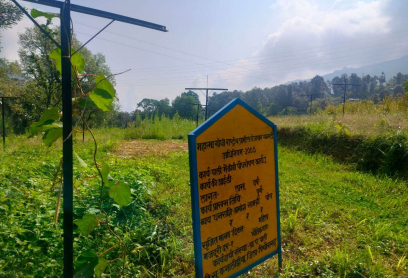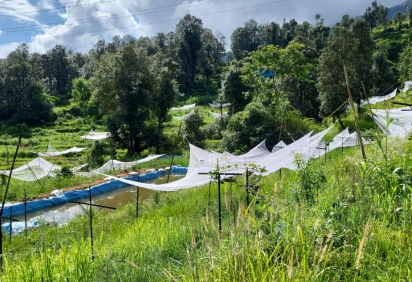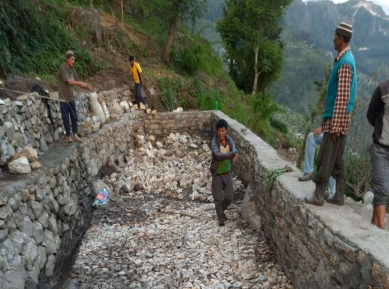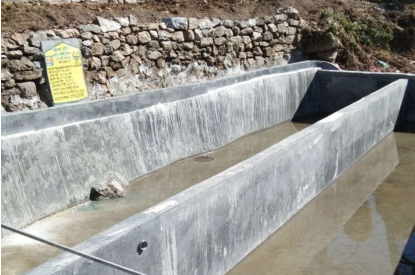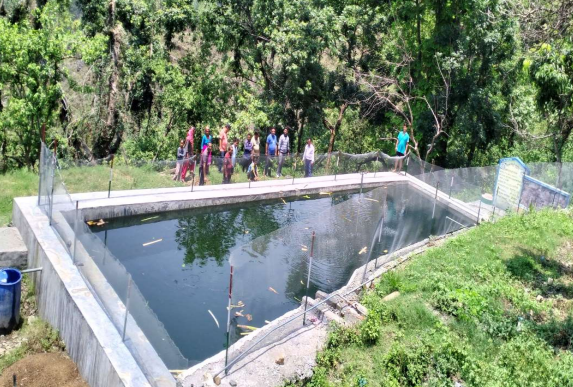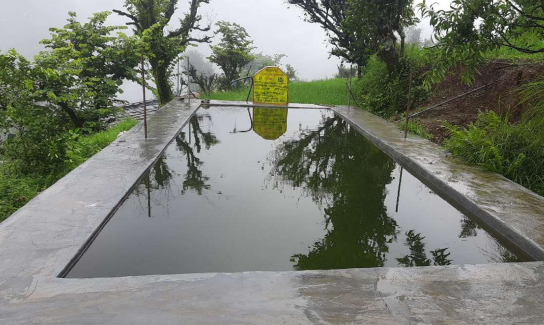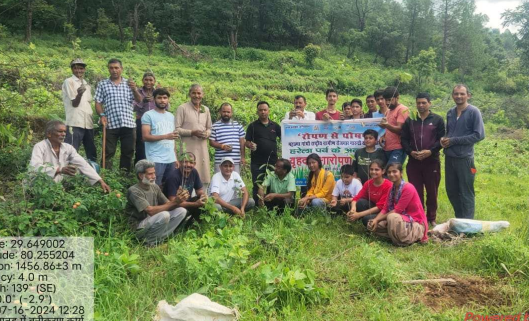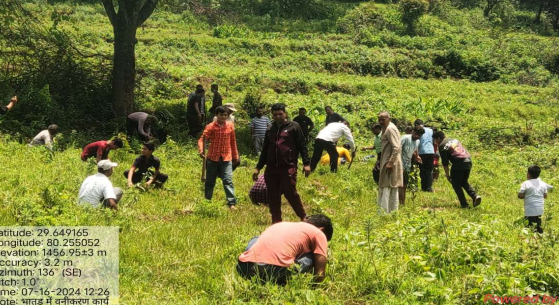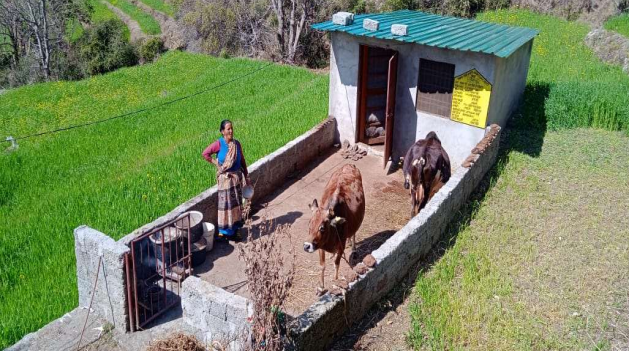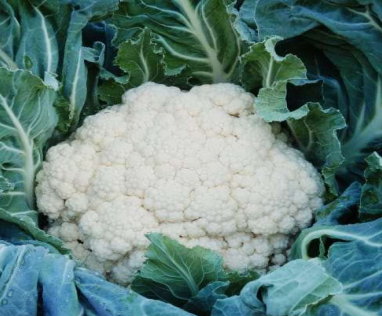1. Berinag in Bloom: The Sweet Scent of Prosperity
-
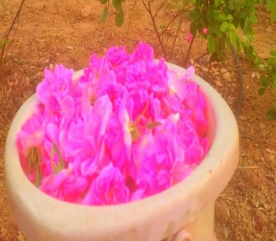
-
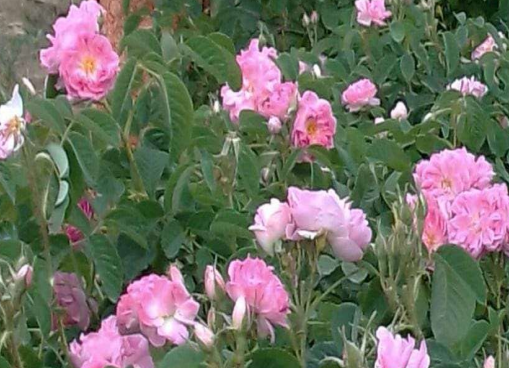
- Story: Damask Rose Cultivation, Berinag
- Location: Koteshwar village, Chachret Gram Panchayat, Berinag Block.
- Project: Cultivation of Damask Rose under MGNREGA, proposed at a cost of ₹2.84 lakh. The initiative was a collaboration with the Centre for Aromatic Plants (CAP).
- Background: Villagers were traditionally dependent on agriculture, which only provided for their subsistence due to changing weather patterns. Shifting to a new cultivation system was challenging, but was made possible through the coordinated efforts of the village development department and CAP.
- Impact: Farmers have successfully shifted from traditional farming to a more profitable alternative. They are earning well by selling roses and their by-products through local markets and Self-Help Groups (SHGs). This success is inspiring nearby villages to adopt rose cultivation.
- Future Plans: In the next phase, local SHGs will be supported to produce rose perfume, further increasing livelihood opportunities and helping women become more self-reliant.
- Financials: An expenditure of ₹2.84 lakh was incurred, creating 1,250 man-days of work.
2. A Fruitful Venture: Empowering Women Through Kiwi Farming in Kanalichhina
- Story: Kiwi Plantation, Kanalichhina
- Location: Pali Gram Panchayat, Kanalichhina Block.
- Project: Plantation of 1,000 Kiwi plants on suitable land with good water availability.
- Motivation: The women of the local SHG were already active in dairy, bakery, and agriculture. They were inspired to cultivate kiwi after observing its high market price and local demand.
- Impact: The women of the SHG earned wages during the plantation phase. They are now expecting an annual yield of 10,000 kg of kiwi (approx. 10 kg per plant), with a market value of around ₹4 lakh. In a trial sale in November 2023, a partial harvest of 300 kg fetched an income of ₹1 lakh.
- Wider Influence: The success has motivated them to diversify into large cardamom and timur cultivation, with plans to plant 6,000 timur saplings. Neighboring Gram Panchayats have also applied for kiwi plantation projects.
- Financials: The project was executed with an expenditure of ₹3.64 lakh, creating 491 man-days of employment.
3. Steeped in Success: Didihat’s Tea Gardens Fueling Local Economy
-
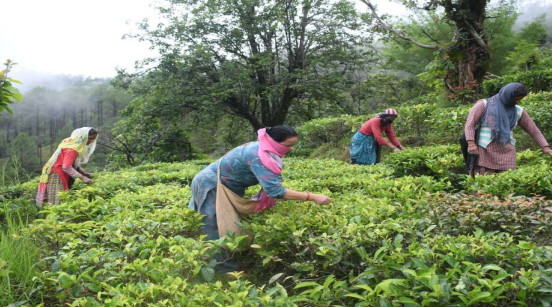
-
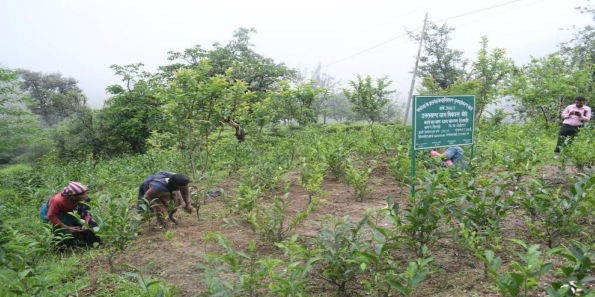
- Story: Tea Cultivation, Didihat
- Location: 10 Gram Panchayats in Didihat Block, including Nanpapo, Tiladi, and Bhadgaon.
- Project: Development of tea gardens and a tea nursery across 52 hectares through a convergence between the Uttarakhand Tea Development Board and MGNREGA.
- Employment Model: Laborers first receive 100 days of employment under MGNREGA (at ₹230/day). Afterward, the Tea Development Board provides approximately 210 additional days of work (at ₹347/day). In 2023-24, 37 job cardholders completed their 100 days under MGNREGA.
- Impact: The project benefits 120 farming families and provides consistent monthly employment to about 150 laborers. After 5 years of plantation, the tea plants mature. Last year, 35 quintals of green leaves were produced, resulting in 7 quintals of finished tea, with green leaves selling for ₹40/kg.
- Future Plans: After the 10-15 year agreement period, the fully developed tea gardens will be transferred to the farmers, making them self-reliant.
4. A River of Revenue: How Trout Farming is Transforming Lives in Munsyari
- Story: Fish Cluster, Munsyari
- Location: Jainti, Paton, and Dhuratoli Gram Panchayats, Munsyari Block.
- Project: Construction of 19 trout fish ponds (raceways) through convergence of MGNREGA (₹19.00 lakh contribution) and the Fisheries Department (₹38.00 lakh contribution).
- Impact: 19 families are directly engaged in fish farming, earning a stable annual income of ₹50,000 to ₹1 lakh each. Each pond produces an average of 20-22 kg of fish per month. The project also contributes to water conservation for agriculture and horticulture.
- Market Linkage: High-demand Trout fish is sold in the local Munsyari market at a premium price of ₹550 per kg.
5. Bringing Life Back: Munakot’s Journey from Ghost Village to Thriving Community
- Story: Reverse Migration Initiative, Munakot
- Location: Bhantad, a revenue village in Panakholi Gram Panchayat, Munakot Block, which had become depopulated.
- Project: An initiative to encourage reverse migration by developing basic facilities and livelihood opportunities. After discussions with families who had migrated, the Gram Panchayat approved a project to plant 2,500 fruit-bearing saplings on the village’s barren land under MGNREGA.
- Impact: As a direct result of this initiative, 15 families (out of 25 that had left) have agreed to return to the village. The returning families have expressed their intent to renovate their dilapidated houses and convert them into homestays, creating a new, sustainable source of tourism-based income.



